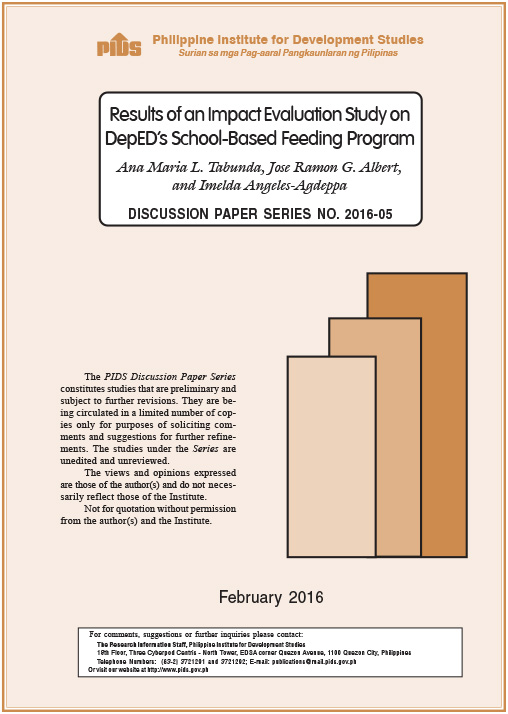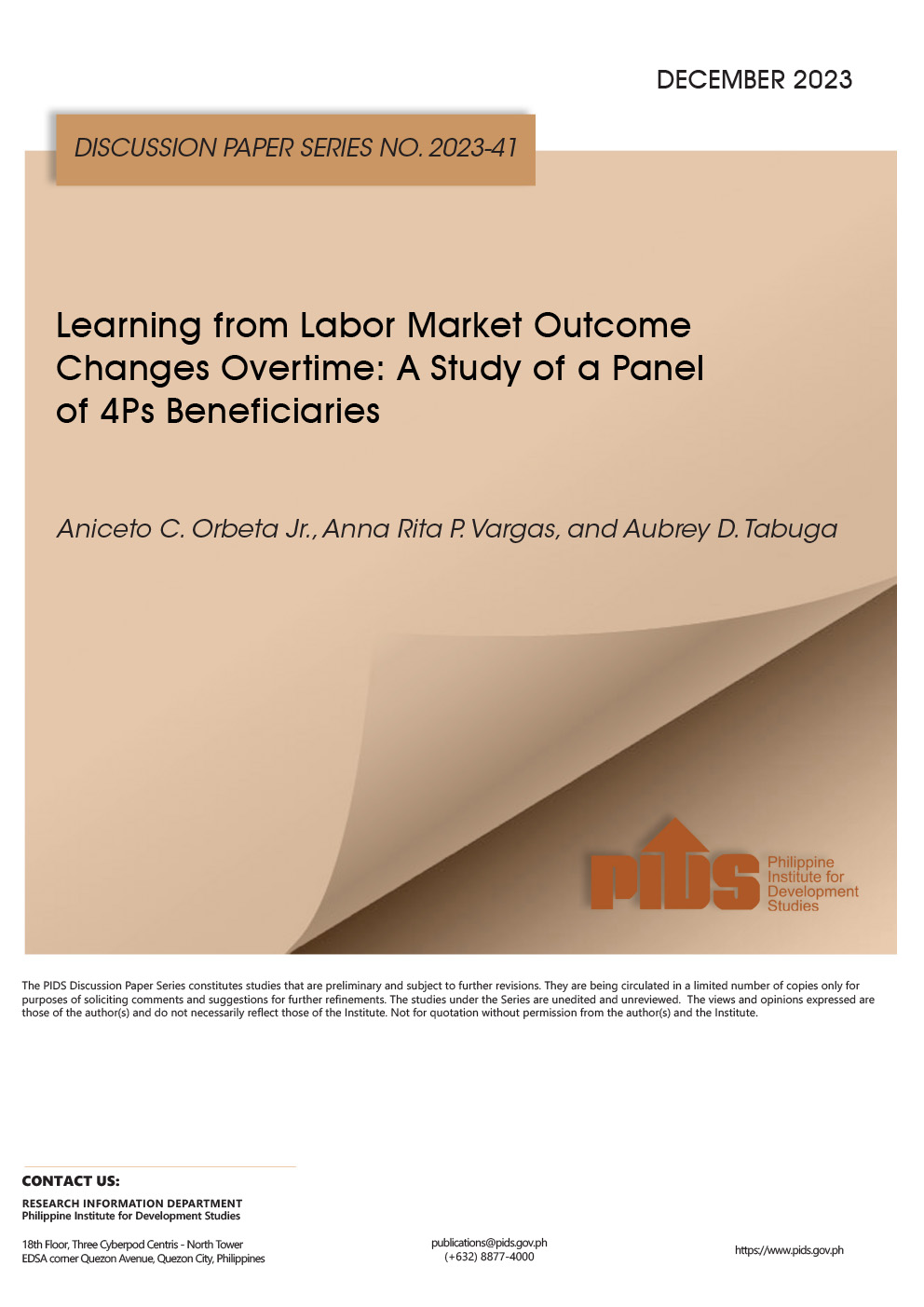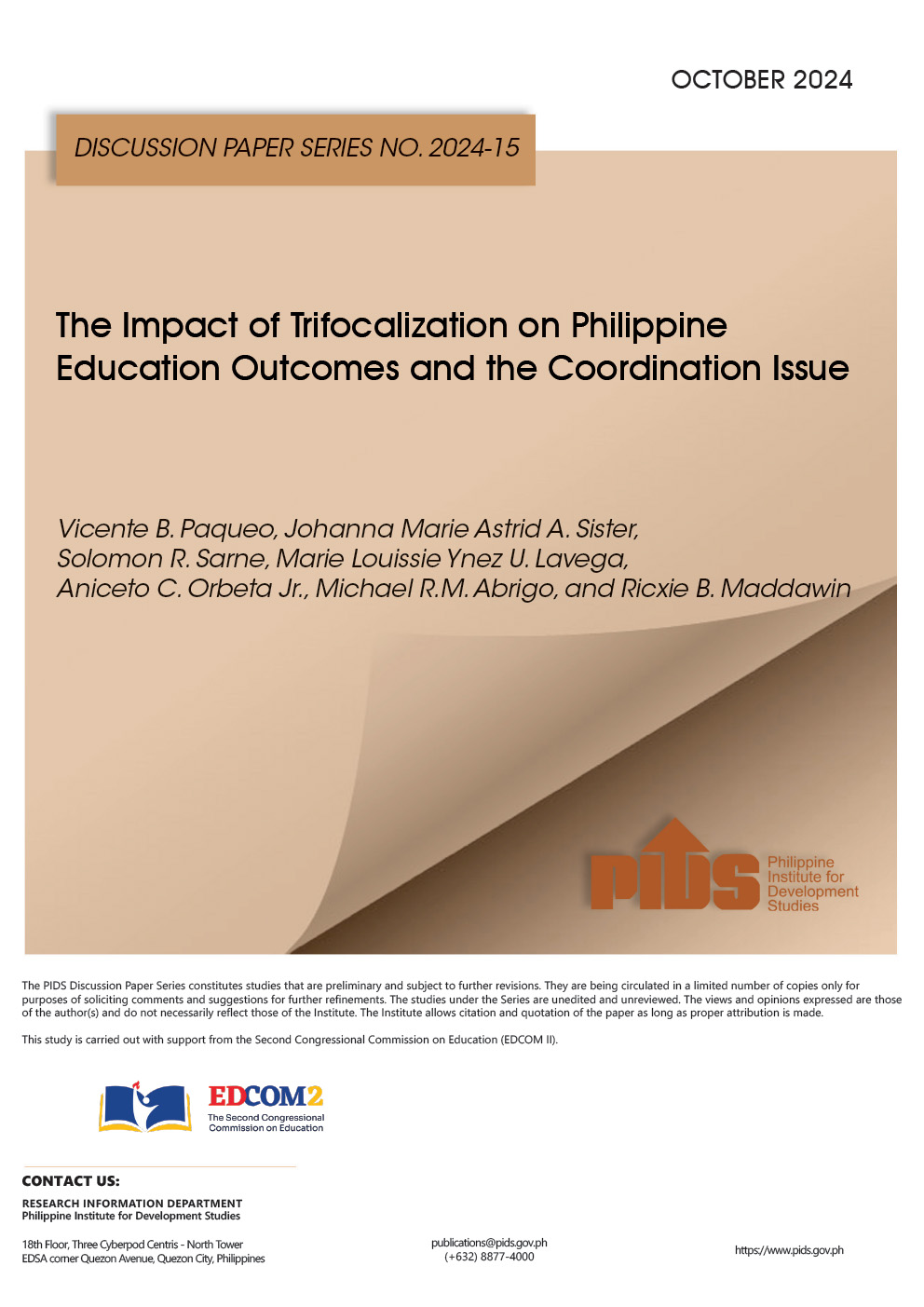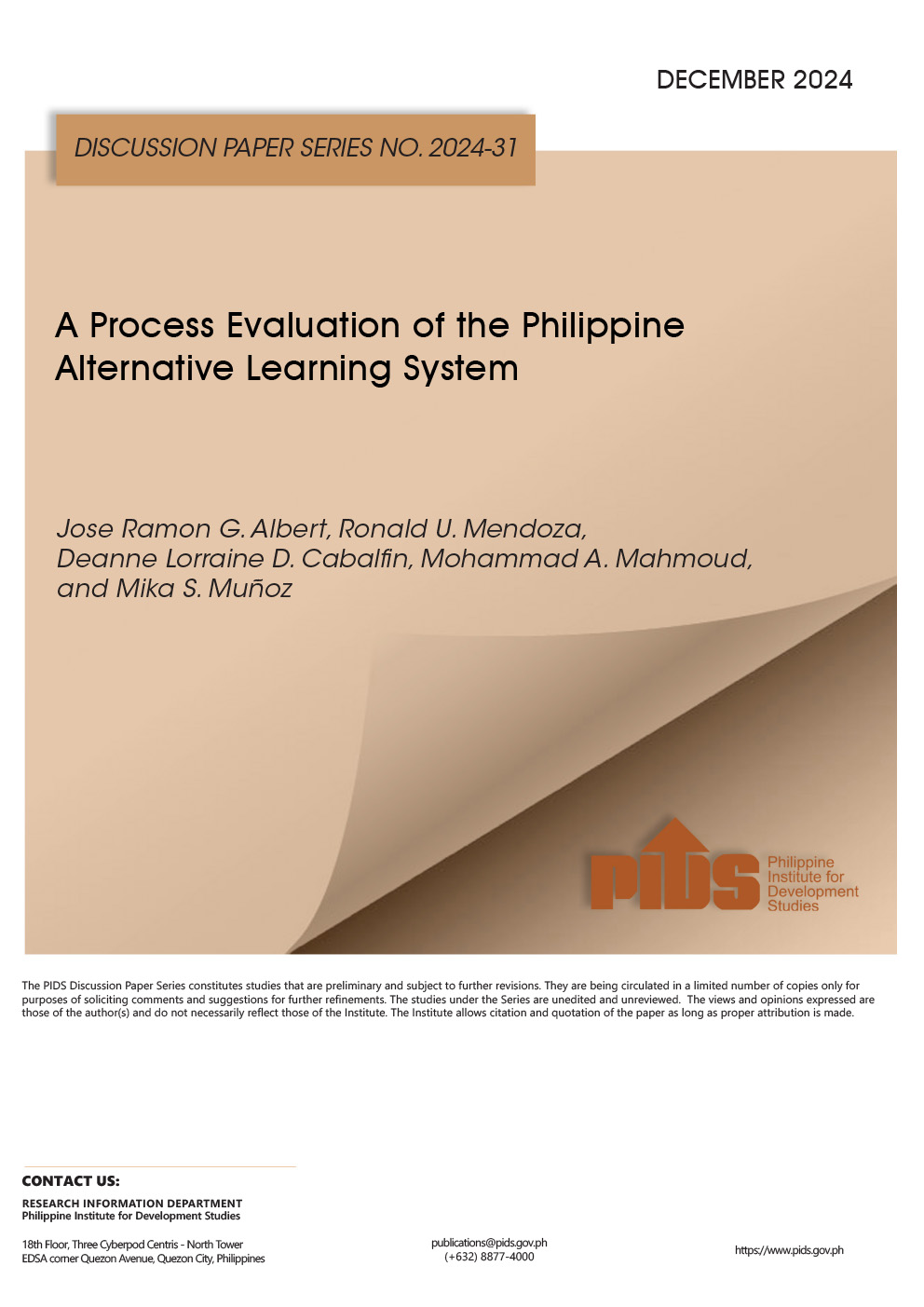The link between malnutrition and poor health among elementary school children and absenteeism, early dropout and poor classroom performance as well as the effectiveness of school-based nutrition and health interventions in improving school performance are well-established in the literature. Thus, the Department of Education has been conducting conditional food transfer programs since 1997. Its current program, the School-Based Feeding Program, as implemented in school year (SY) 2013-2014, fed 40,361 severely wasted pupils enrolled in Kindergarten to Grade Six in 814 public elementary schools in the country.
This paper presents the findings from the impact evaluation of the SY 2013-2014 implementation of the program. This is a follow-up on the process evaluation conducted by the PIDS. The study employed mixed methods research, undertaking qualitative surveys while undertaking focus group discussions. The findings indicate that, except for inaccurate measurement of nutrition status variables and improper documentation of the program in all its three phases (prefeeding, feeding, and postfeeding), the program was generally implemented well by the beneficiary schools, and welcomed not only by program beneficiaries and their parents but also by many of the school heads and teachers of the beneficiary pupils.
Citations
This publication has been cited 3 times
- Preciados, Lemuel and Fatima C. Catchero. 2020. Factors influencing consumption behavior of choco-carabao milk in Visayas State University (VSU), Baybay City, Leyte, Philippines. Journal of Economics, Management & Agricultural Development, 6, no. 1 . Journal of Economics, Management & Agricultural Development (JEMAD).
- World Bank. 2018. Philippines Economic Update. Reports 29725. The World Bank Group.
- Danilo Israel and David Bunao. 2017. Government’s log-ban policy raised jobless count in countryside . BusinessMirror.













